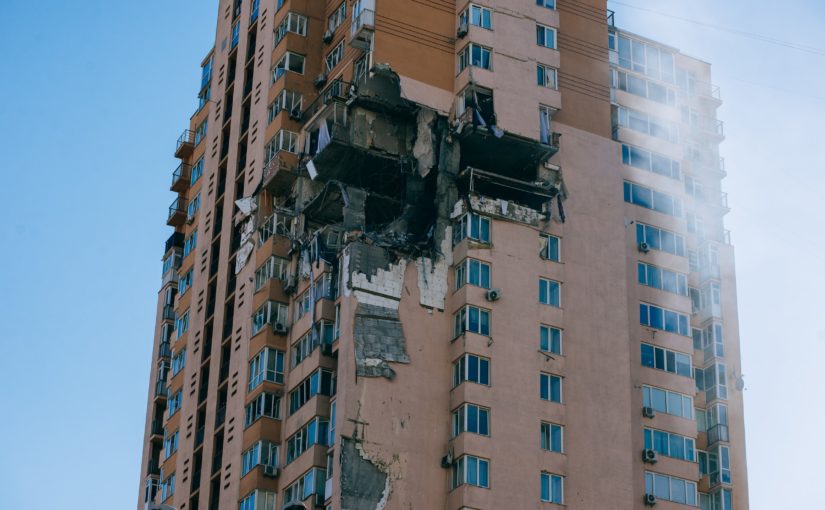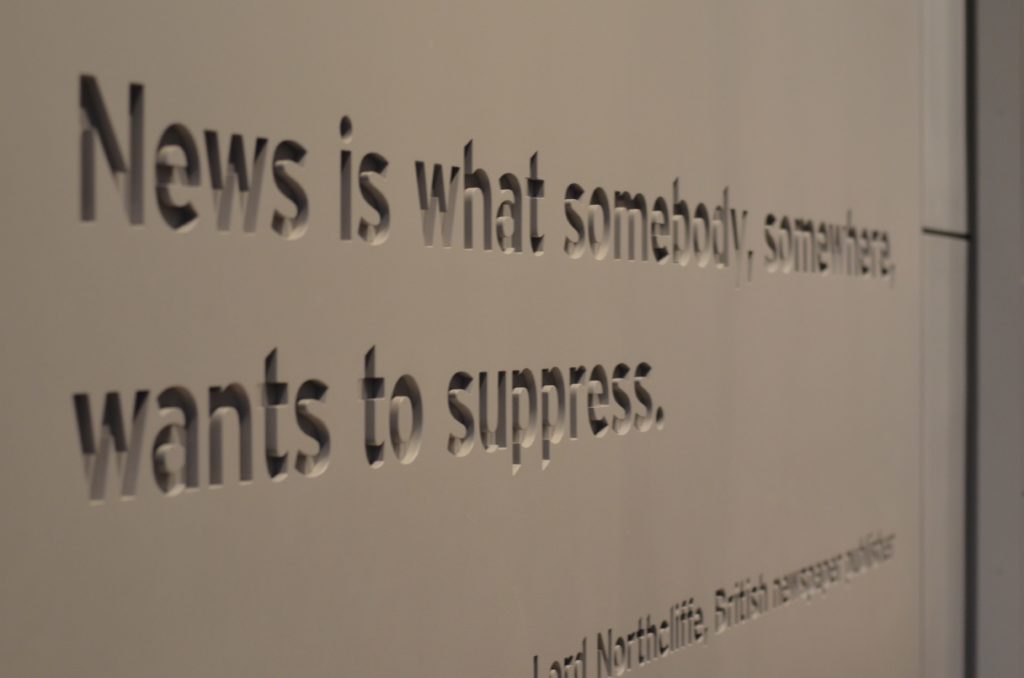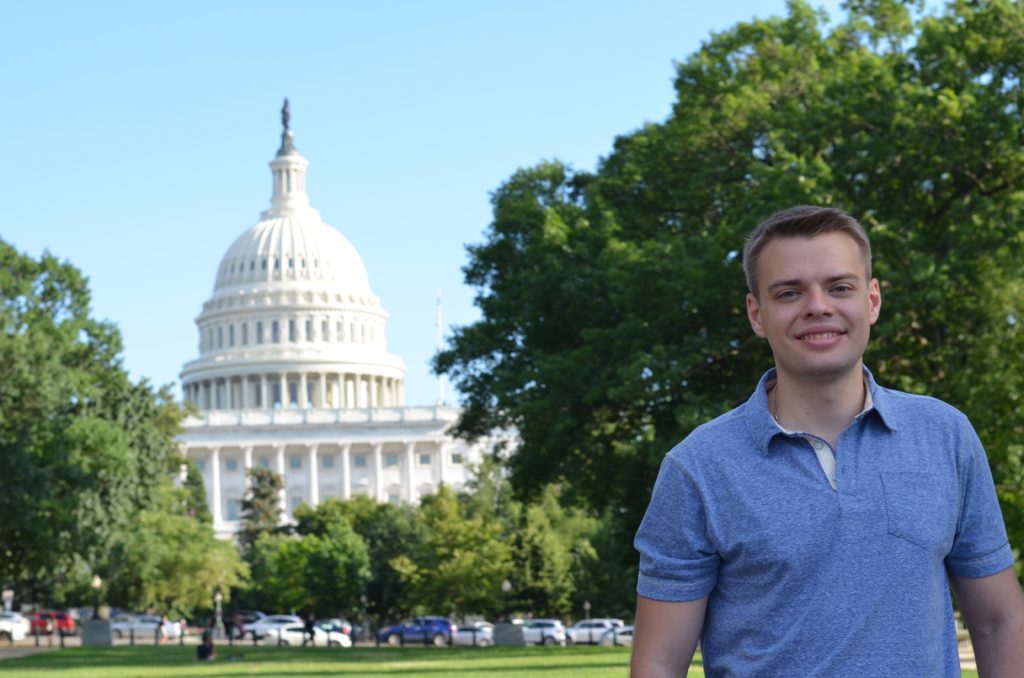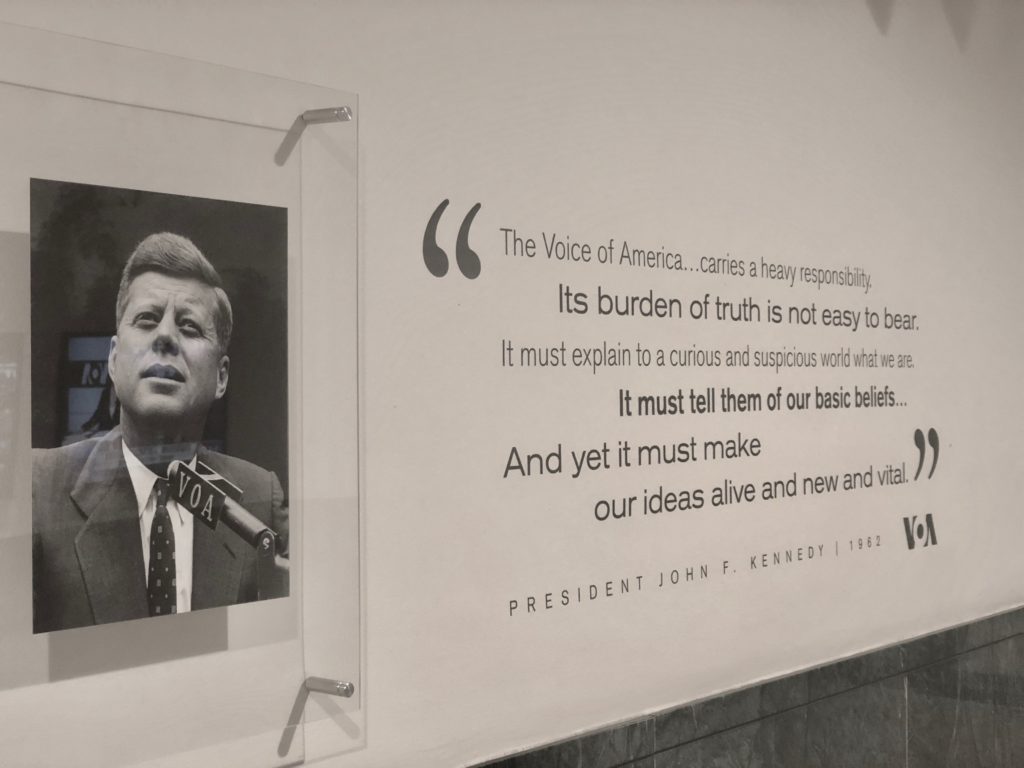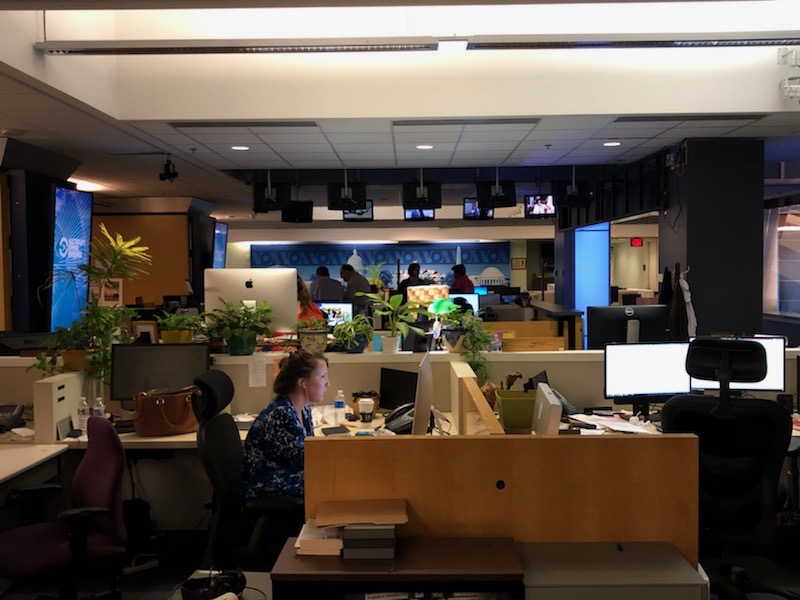Editor’s Note: In this reflection, Anna Romandash, an award-winning journalist from Ukraine and a student in the Keough School’s Master of Global Affairs program, shares her perspective on the horrific human cost of the Russian invasion of Ukraine.
I grew up in Ukraine in the 1990s. I never saw the Soviet Union, but I heard stories. They were so bizarre that I could never picture them.
My parents told me about their childhood, and even though it had similarities with mine, it seemed surreal. I could not imagine living in a gigantic military empire where food was scarce, but guns were plenty.
Ukraine in the nineties was very different from that reality. Yes, it was poor, and yes, it was transitioning from a colony of a corrupt and merciless system to an actual democracy. But the transition was going forward. It did not move as fast as we all wanted, but it got there.
In thirty years, Ukraine went a long way.
Cities which were once blocked by the Iron Curtain turned into bustling megapolises, colorful and shiny, full of possibilities, dreams, and aspirations. Villages modernized but kept their traditional look. Everything was growing and going somewhere.
I love Ukraine. It is beautiful, and it is home.
I never took for granted anything I had in Ukraine. I would often get mad at my fellow citizens, get annoyed with how things were managed, or with some popular ideas. But at the end of the day, I got them. I got Ukraine. I understood Ukraine better than I understood anything else.
This is something people tend to have: a bond with those who live on the same land and belong to one nation.
Ukraine is big and diverse, but the differences did not prevent me from understanding other Ukrainians — the same way other Ukrainians could understand me.
And we all understood, or rather, felt the constant shadow over us.
The Threat of Russian Expansionism
Russian colonialism was always looming somewhere in the northeast, always watching carefully when to strike. Even before actual military actions, we always expected Russia to interfere in some way — that fear is shared by the many nations who were conquered by the Russian empire.
The West would always disregard claims, pleas, and criticisms that Ukrainians, Estonians, and other people from Eastern Europe would make about Russia. We were considered paranoid and cowardly, unwilling to accept that Russia is just a big neighbor whose influence is not a menace, and encouraged to accept that the Kremlin will impact our domestic and international policies in one way or another.
The West explained to us, Eastern Europeans, that they get Russia better and that we should just let it go. We should not worry about Russia because its influence is logical given its size and location, and even though it is not a liberal democracy, it is still a trusted and reliable partner.
Classic Westplaining.
But even I, who never saw the Soviet Union, knew what Russia’s regime was. It was only the West that still hoped to build healthy relations with the Kremlin, but nations whose histories were marked by hundreds of years of Russian colonialism knew better.
Russia has interfered in Ukrainian politics since I can remember. In 2004, Putin did not like Ukraine’s Orange Revolution and the election of a pro-European president. This is when “gas wars” and “food wars” started. The Kremlin would ban Ukrainian imports and stop sending Russian gas via Ukraine to Europe while blaming us for stealing it!
In 2008, Russia invaded Georgia, and we watched in horror.
It annexed Crimea in 2014 and invaded parts of Eastern Ukraine where its puppet regime created fake republics. If it was not for Russian intervention, none of those things would have happened.
Russia poisoned its former agents, killed opposition leaders, and threatened Ukraine — and the world — many times. Yet, the West was quiet about it. I assume they thought it was all big talk.
So when Russia accused Ukraine of stealing gas, the West believed it, taking its word and blaming Ukraine.
When Russia invaded Georgia, the West just watched. No serious sanctions, nothing. Business as usual.
Relations with Russia and the West actually improved after that.
Ukraine was bullied into accepting Crimea annexation, and Russia did not get a tough response over its involvement in Eastern Ukraine. The West made a collective shrug, and that was it.
This is the reality which brought us to this day. Now, the West is starting to sound the alarm. It cries about a mad killer leading the Kremlin and wonders how it can stop him without provoking him. But the truth is, Putin has not changed. He has always been like this: willing to kill, invade, and deceive to get what he wants. It’s just now he does it much more openly and on a much bigger scale.
The West keeps on judging Putin according to its own standards. But they don’t work. We see that the collective security agreements are useless, and so is the UN. Russia is in the UN Security Council. This is a country which massacred people in Bucha. This is a country whose soldiers raped Ukrainian women and children on the territories they sieged. This is a country that claims that it has not committed any war crimes when the evidence is clear as the light of the day.
Death and Devastation
While the West keeps on calculating the costs of leaving its comfort zone, I calculate the dead. Those numbers are impossible to confirm now, but locals report at least 20,000 killed in Mariupol. This is a city that Russians are continuing to siege and devastate. This is the toll of only one city.
More than a hundred fifty children have been killed.
Five million people have fled the country.
Eleven million displaced.
Cities destroyed.
And there’s more.
The Ukrainian army liberated the area north of Kyiv in the beginning of April. They filmed what they saw in this rich and prosperous region after Russians left it, weeks after bloody occupation.
If you have not heard about it, Google it. The cities are Bucha. Irpin. Chernihiv. Hostomel.
In Bucha, Russians killed every single male ages 16 to 60. They shot them and put them in a mass grave. Those men were civilians. Unarmed.
They killed the mayor and her husband. They tortured them before murdering them.
When Ukrainian soldiers entered the city, they saw corpses everywhere. Russians went on a killing spree before they left. They killed all the locals they saw outside. They also killed people who were hiding in their houses. Some corpses had their hands tied up. They burned one boy alive. They raped a woman in front of her son, then killed her.
I thought I would make a call to action here and ask you to speak up and demand your governments to help Ukraine.
But it has been a few days since I cannot function normally.
And I don’t know what to ask of any of you.
I don’t believe Western governments anymore because they have no empathy as they allowed for this to happen. They rejected Ukrainian pleas for help. They refused to provide the arms we asked for. They are still buying Russian energy and financing the war against Ukraine.
I don’t know how I will be able to return to Notre Dame. I don’t know how I will be able to surround myself with happy young people who dream and hope. I watch the genocide of Ukrainians happen in real life, and the worst is yet to come.
And I don’t have questions or demands for anyone anymore. The world has failed me.
Cover image: A damaged high-rise building in Kyiv, Ukraine. Photo by Julia Rekamie on Unsplash

